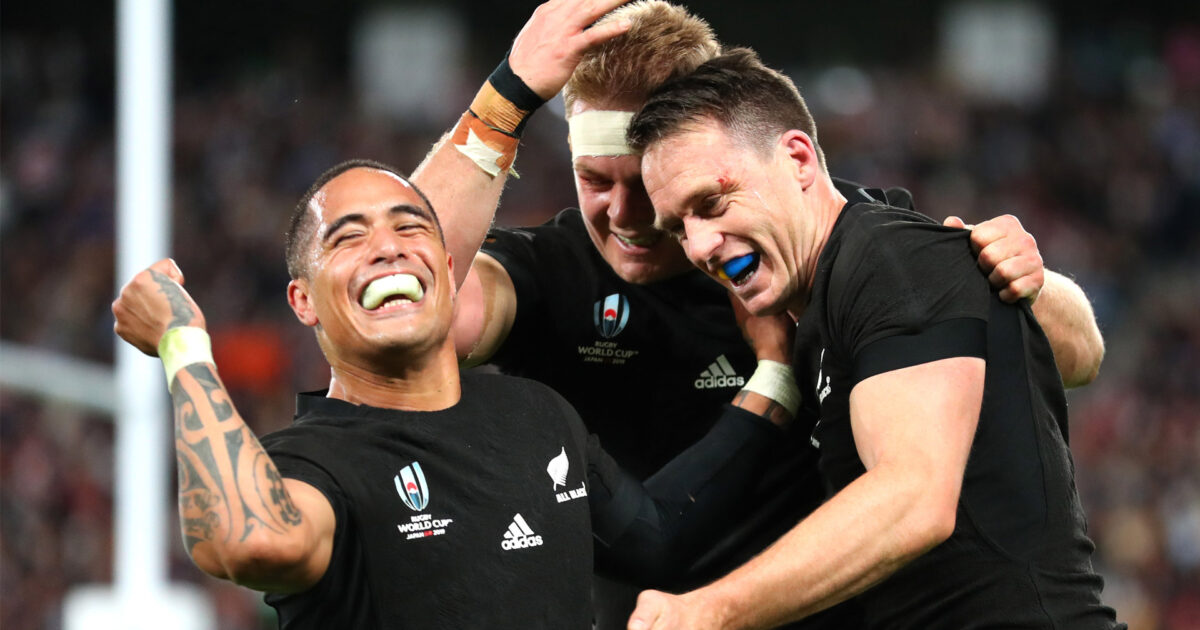The five-year relationship finally made official that could fuel further success for the All Blacks

When the All Blacks take the field against Australia in October for their first test match of the year, supporters across New Zealand will be cheering from Cape Reinga to the Bluff.
After an incredibly challenging year with the COVID-19 pandemic, an army of people have put in countless hours to get international rugby finally back on the calendar, and the All Blacks will kick everything off with the first Bledisloe Cup match of the season on October 11th.
It won’t just be the players that will be relieved when they run out onto the SKY Stadium turf in Wellington, however. The coaches, managers and support staff have all been intently focussed on best preparing the All Blacks for what’s shaping up as one of their most anticipated season-openers in years.
Kat Darry, the All Blacks nutritionist, is just one of the many non-playing personnel who have been preparing the men in black for a Test like no other – and that’s involved ensuring the full squad have been maintaining a healthy, robust diet.
“The importance of maintaining a healthy diet and strong immune system has never been more topical and for high-performance athletes like the All Blacks. It’s as important as their physical training regimes,” says Darry.
“The high daily physical demands experienced by elite-level rugby players such as the All Blacks often makes it difficult for players to eat enough or meet their individual needs for specific nutrients.”
While food obviously remains the key source of the nutrients that the All Blacks have to consume on a daily basis, it’s sometimes simply not enough to meet all the requirements needed to maintain a professional rugby player in peak condition. In the last five years, many of New Zealand’s top players have relied on Healthspan Elite supplements. Now, in 2020, the All Blacks and Healthspan have formalised that arrangement, with the UK supplements company officially getting on board as the New Zealand side’s first-ever official sports nutrition, protein, vitamins and supplements partner.
It’s a relationship that’s been welcomed by Darry.
“All Blacks expend a huge amount of energy, whether it be in the gym, out on the training paddock, or in a game,” the experienced nutritionist said.
“To have the support of specific supplements from Healthspan Elite, which can be utilised when a player’s needs are greater than what they can meet from our food-first approach, is important.
“I’m looking forward to working with Healthspan Elite to build on our existing relationship and to develop fit-for-purpose, trusted and proven products to keep the All Blacks at the top of their game and their health.”
From caffeine gum to vitamin D, probiotics to vegan protein, the Healthspan Elite range caters to all the needs of a top athlete and, just as importantly, all the needs of individual diets.
If ever there were a time for Patrick Tuipulotu to make a statement, it's now. #AllBlackshttps://t.co/QTeVyOYYjT
— RugbyPass (@RugbyPass) October 7, 2020
Unsurprisingly, Darry has had experience with a wide range of supplements and health products, and she was quick to endorse the Healthspan Elite range as it specifically targets high-performance sportspersons.
“One of the first things that really attracted me initially was that they are designed for athletes. There are a lot of products out on the market but they’re for the general layperson. Healthspan Elite are great because they’re really designed to help an athlete.
“They’ve been a company I’ve been working with for a number of years now. I love their product development, love their passion around sport and their commitment to helping athletes be the best that they can.”
With the support of Healthspan Elite, Darry and the rest of the support team will be able to ensure that the All Blacks are getting the right nutrients to help them perform at their peak.
Healthspan Elite products are available here in the UK and here in New Zealand.










































































